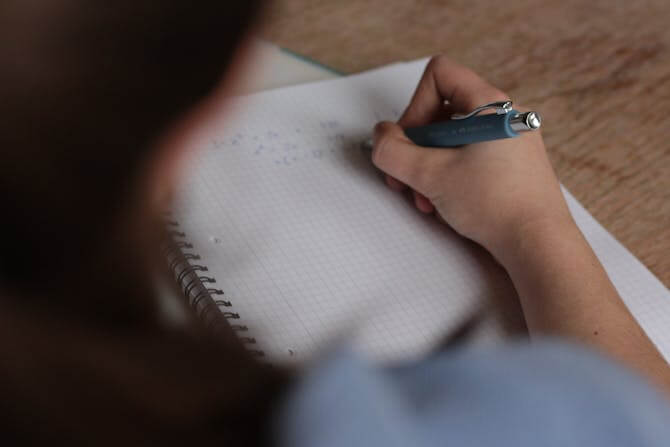
Sleep Strategies for Parents to Help Their Teens Through GCSEs
Facing GCSEs can be a daunting time for both teenagers and their parents.
As a parent, you want to support your child in every possible way, and one of the most important aspects of this support is ensuring they get enough sleep.
In this guide, we'll explore some effective sleep strategies tailored to the GCSE period, helping your teen navigate revision, exams, and maintaining concentration levels.

Understanding the Importance of Sleep
Before overthinking about strategies, it's essential to understand why sleep is so crucial during the GCSE period.
Sleep plays a vital role in memory consolidation and cognitive function because during sleep the brain processes and stores information learned during the day.
If your teen does not get enough sleep, it can severely compromise their ability to concentrate, retain information, and perform well in exams.
Establishing a Sleep Routine for Exam Time
Consistency is key with sleep.
Help your teen establish a regular sleep routine that allows for sufficient rest. Encourage them to go to bed and wake up at the same time every day, even on weekends.
This consistency helps regulate their body's internal clock, making it easier to fall asleep and wake up refreshed.
Creating a Relaxing Bedtime Ritual
During the GCSE stress, it's essential to unwind before bed. Encourage your teen to develop a relaxing bedtime ritual that signals to their body that it's time to wind down.
This could include reading a book, taking a warm bath, or practising relaxation techniques like deep breathing or meditation.
Limiting Screen Time Before Bed
The blue light emitted by screens can interfere with the body's natural sleep-wake cycle, making it harder to fall asleep.
Encourage your teen to limit screen time to at least an hour before bedtime. Instead of scrolling through social media or watching TV, they can engage in calming activities that promote relaxation.
Creating a Sleep-Friendly Environment
What is essential is to make sure that your teenager's bedroom is a perfect spot for sleep, characterized by a cool, dim, and peaceful atmosphere, complemented by a comfortable mattress and pillows.
If noise is a concern, consider using white noise machines or earplugs to block out distractions.

Encouraging Daytime Exercise
Regular physical activity can improve sleep quality by promoting feelings of tiredness at night.
Encourage your teen to incorporate exercise into their daily routine, whether it's going for a walk, playing a sport, or practising yoga.
However, it's essential to avoid vigorous exercise close to bedtime, as it can have the opposite effect and make it harder to fall asleep.
Managing Stress and Anxiety
The GCSE period can be incredibly stressful for teens, which can negatively impact their sleep. Encourage open communication with your teen and offer support and reassurance.
Help them develop healthy coping mechanisms for managing stress, such as talking to a trusted adult, practising mindfulness, or engaging in hobbies they enjoy.
We have a great article about how to get decent sleep while struggling with anxiety.Supporting Healthy Sleep Habits
As a parent, you play a crucial role in supporting your teen's sleep habits during the GCSE period. Be mindful of your sleep habits and set a positive example for your teen.
Try to avoid talking about stressful things or doing exciting activities right before bed. Instead, focus on creating a peaceful and supportive home environment.
Seeking Professional Help if Needed
If your teen struggles with sleep issues that persist despite your best efforts, don't hesitate to seek professional help. A doctor or sleep specialist can provide personalised advice to help improve your teen's sleep quality and overall well-being.
Helping your teen navigate the GCSE period successfully requires a holistic approach that includes prioritising sleep.
By implementing the strategies outlined in this guide and providing ongoing support and encouragement, you can help your teen get the rest they need to excel in their exams and, potentially, beyond.
Remember, the journey through GCSEs is not just about academic achievement but also about fostering healthy habits that will benefit your teen for years to come.
If you have university-age children, have a look at our sleep help for students at university article.









Leave a Reply